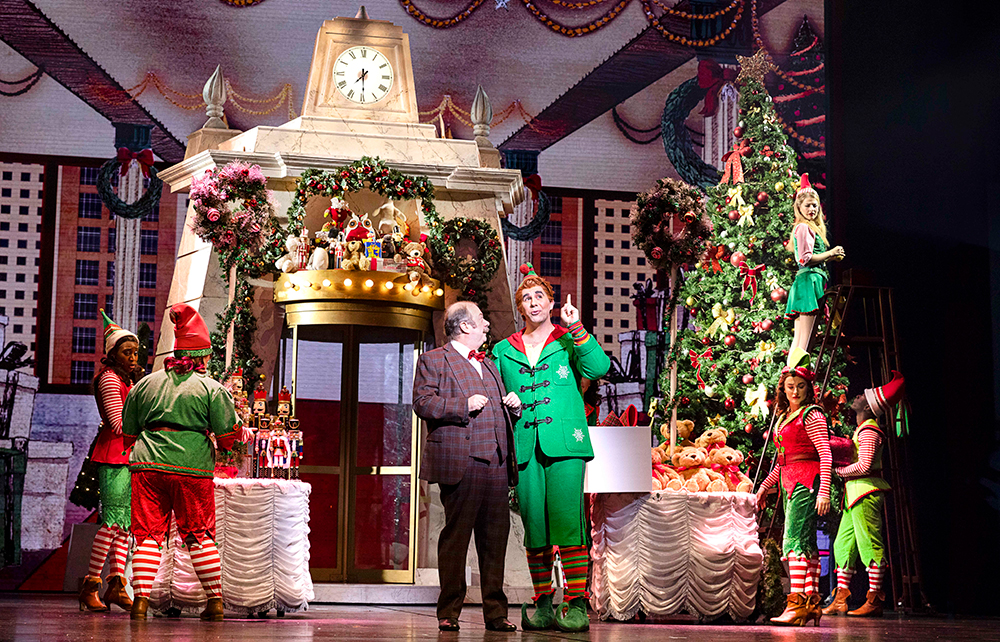Elf opens with an unbelievable premise. Buddy was abandoned as a baby and adopted by Santa’s elves and he spent a happy childhood making Christmas gifts in their factory at the North Pole.
The action begins when Buddy decides to track down his real father in New York, but when he arrives he finds a community sunk in greed and cynicism. He’s horrified to learn that everyone exploits Christmas for financial gain. His dad, Walter Hobbs, turns out to be a bullied publishing executive who has no time to spend with his wife and his lonely younger son. Buddy’s mission is to restore love to this broken family and to repair the fractured society of New York. Along the way, he starts a corny romance with a sexy blonde elf, Jovie, who works in Santa’s grotto at a department store.
The final moments are as moving as anything in Dickens
The power of the story lies in its goofy simplicity and in the ingenious brilliance of analysing capitalism through the eyes of a trusting and incorruptible innocent who believes in the original message of Christmas.
The challenges faced by Buddy seem insurmountable. Can he heal the suffering Hobbs family? Will he save Walter from his nasty, rapacious bosses? Is it possible for him to find love with a part-time elf? Well, it’s Christmas, so everything is possible.
Simon Lipkin dazzles as Buddy, and he easily matches the loose-limbed charm of Will Ferrell in the 2003 movie. Tom Chambers shines as the pinched and angry Walter who chooses love over greed and rebels against his heartless bosses. Dermot Canavan is a little powerhouse of comic invention as the Manager who believes that Buddy is an undercover agent sent by his superiors to spy on Santa’s grotto.









Comments
Join the debate for just £1 a month
Be part of the conversation with other Spectator readers by getting your first three months for £3.
UNLOCK ACCESS Just £1 a monthAlready a subscriber? Log in